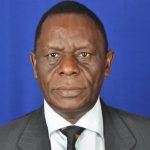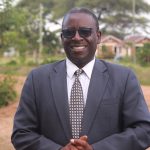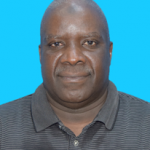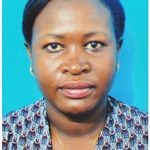Overview
Agriculture, Forestry, and Other Land Use (AFOLU) plays a central role for food security and sustainable development. Plants take up carbon dioxide (CO2) from the atmosphere and nitrogen (N) from the soil when they grow, re-distributing it among different pools, including above and below-ground living biomass, dead residues, and soil organic matter. The CO2 and other non-CO2 greenhouse gases (GHG), largely methane (CH4) and nitrous oxide (N2O), are in turn released to the atmosphere by plant respiration, by decomposition of dead plant biomass and soil organic matter, and by combustion.
Anthropogenic land-use activities (e.g., management of croplands, forests, grasslands, wetlands), and changes in land use/cover (e.g., conversion of forest lands and grasslands to cropland and pasture, afforestation) cause changes superimposed on these natural fluxes. AFOLU activities lead to both sources of CO2 (e.g., deforestation, peatland drainage) and sinks of CO2 (e.g., afforestation, management for soil carbon sequestration), and to non-CO2 emissions primarily from agriculture (e.g., CH4 from livestock and rice cultivation, N2O from manure storage and agricultural soils and biomass burning.
The main mitigation options within AFOLU involve one or more of three strategies: reduction/prevention of emissions to the atmosphere by conserving existing carbon pools in soils or vegetation that would otherwise be lost or by reducing emissions of CH4 and N2O; sequestration—enhancing the uptake of carbon in terrestrial reservoirs, and thereby removing CO2 from the atmosphere and reducing CO2 emissions by substitution of biological products for fossil fuels or energy-intensive products. Demand-side options (e.g., by lifestyle changes, reducing losses and wastes of food, changes in human diet, changes in wood consumption), though known to be difficult to implement, may also play a role.
Land is the critical resource for the AFOLU sector and it provides food and fodder to feed the Earth’s population of ~7 billion, and fibre and fuel for a variety of purposes. It provides livelihoods for billions of people worldwide. It is finite and provides a multitude of goods and ecosystem services that are fundamental to human well-being (MEA, 2005). Human economies and quality of life are directly dependent on the services and the resources provided by land. Figure 11.1 shows the many provisioning, regulating, cultural and supporting services provided by land, of which climate regulation is just one. Implementing mitigation options in the AFOLU sector may potentially affect other services provided by land in positive or negative ways.
Technical Working Group

Mr. Deogratius Gambago
Ministry of Livestock and Fisheries
Chairperson
 Ms. Adelaide Tillya
Ms. Adelaide Tillya
Tanzania Sustainable Poverty Alleviation
Deputy Chairperson
 Dr. Paulo J. Lyimo
Dr. Paulo J. Lyimo
Sokoine University of Agriculture (SUA)
Secretary

Dr. Zabron Nziku
Tanzania Livestock Research Institute(TALIRI)
Deputy Secretary
 Ms. Winfrida J. Shonde
Ms. Winfrida J. Shonde
Tanzania Environment and Empowerment Movement (TEEMO)
Member
 Prof. Salim Maliondo
Prof. Salim Maliondo
Sokoine University of Agriculture (SUA)
Member
 Dr. Wilson A. Mugasha
Dr. Wilson A. Mugasha
Sokoine University of Agriculture (SUA)
Member

Dr. Patrick Ndaki
Institute of Resource Assessment/Centre for Climate Change Studies
Member

Dr. Lucy Ssendi
Tanzania Sustainable Poverty Alleviation – TASPA
Member

Ms. Miza KHAMIS
Ministry of Agriculture, Irrigation, Natural Resources and Livestock
Member
 Dr. Abel Masota
Dr. Abel Masota
Tanzania Forest Services Agency (TFS)
Member
 Prof . Josiah Katani
Prof . Josiah Katani
Sokoine University of Agriculture (SUA)
Member

Mr. Njabha LYATURA
Kilwa District Council
Member
 Mr. Kamwesige Mjuni Mtembei
Mr. Kamwesige Mjuni Mtembei
Ministry of Agriculture
Member

Dr. Ismail Seleman
Sokoine University of Agriculture (SUA)
Member

Mr. Prosper Makundi
Ministry of Agriculture (MoA)
Member

Mr. Fred Francis
Ministry of Livestock and Fisheries
Member

Mr. Ali Said Ali
Zanzibar Fisheries and Marine Resources Research Institute (ZAFIRI)
Member

Mr. Julius E. Salema
National Environment Management Council (NEMC)
Member

MS. Zaninab Sheuya
Ministry of Agriculture, Environment Management Unit
Member

Prof. Omari Mzirai
Institute of Rural Development and Planning (IRDP)
Member

Said Masoud
Zanzibar Agriculture Research Institute (ZARI)
Member

Mr. Alfei Daniel Maseke
Care International
Member

Mr. Prosper Makundi
Member

Titus Mwisomba
Member

Basil Msuha
Agriculture Statistics & ARDS
Member

Crecencia Mpanda
Ministry of Agriculture
Member

Doris Sendewa
National Irrigation Commission
Member

Prof. Germana Laswai
Sokoine University of Agriculture
Member

Mohamed Yusuf Haji
Kilimo na Uhakika wa Chakula
Member

Faki Kessi
Kilimo na Uhakika wa Chakula
Member

Dr. Masoud Said
Zanzibar Agriculture Research Institute (ZARI)
Member

Dr. Meliho
Tanzania Agriculture Research Institute (TARI)
Member

Dr. Jonas Kizima
Tanzania Livestock Research Institute (TALIRI)
Member
 Mr. Cosmas J. Emily
Mr. Cosmas J. Emily
Sokoine University of Agriculture (SUA)
Member
Mr. Abdallah Lungo
Vice President’s Office
Member
 Mr. Abbas Juma Mzee
Mr. Abbas Juma Mzee
Ministry of Agriculture, Irrigation, Natural Resources and Livestock
Member
 Ms. Hadija J .Kayera
Ms. Hadija J .Kayera
Vice President’s Office
Member
 Mr. Edison Mwijage
Mr. Edison Mwijage
National Carbon Monitoring Centre
Member
 Dr. Hamza Kija
Dr. Hamza Kija
Tanzania Wildlife Research Institute (TAWIRI)
Member
 Dr. Elikana John
Dr. Elikana John
Tanzania Forest Services Agency (TFS)
Member
